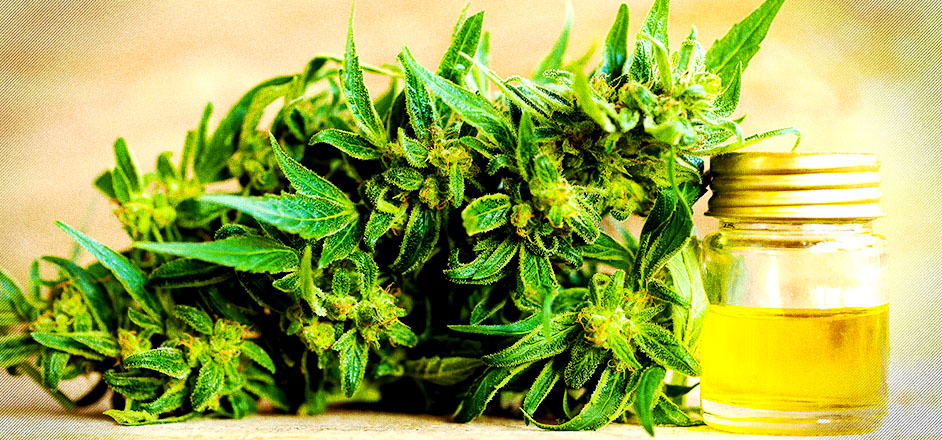For the first time, ads for products made from cannabis sativa are running on national TV.
What's more, they're running on some of the most family-friendly, mom-and-pop networks around.
Oxygen, Lifetime Movies and BBC America are just a few of the outlets running a 30-second commercial advertising the natural health company Palmetto Harmony, which makes oils, vape cartridges and capsules filled with CBD.
"We're hoping there's a lot of buzz around this, that people will see these commercials and see that it's not an evil weed," the mom behind Palmetto Harmony, Janel Ralph, said.
Federal regulations say no illegal product can go on TV.
Since weed is illegal federally, it's been banned. Cannabrand nearly ran a vape pen ad on local TV two years ago, but it was pulled at the last minute. (Veedverks almost sponsored a NASCAR team, but it was nixed at the eleventh hour.)
But CBD exists in a legal gray area, neither clearly legal nor clearly illegal. Hence this ad.
Janel's daughter Harmony, an 8-year-old girl with dark hair and soft eyes, probably won't realize that her name is on national TV tonight.
Born with a rare genetic condition, a layer of her brain didn't develop, and she's non-verbal and non-mobile. Worse, she suffered for years from hundreds of seizures a day.
Pharmaceutical drugs helped little.
Then, a virtual miracle: hemp oil full of CBD, her mom found, reduced her seizures by 90 percent. Thousands of kids with seizures have found similar relief.
This discovery lead Janel to create her company to produce reliable, pure CBD products, and name it after her daughter and her state, South Carolina, the Palmetto State.
As cannabis is changing its public face from edgy to mainstream, this commercial is as wholesome as Harmony's story, built to fit in perfectly with Lifetime's movie this evening, "Nanny for Christmas."
There's no dreds. No rasta music. No fan leaves.
It's a middle-aged couple on bikes, a soldier in front of a flag and a healthy labrador on a beach, frollicking. A voiceover — smooth and calming, like an ad for Dove Soap — says "We make all-natural, organically grown wellness products for the entire family." Never do they mention the words "cannabis" or "hemp."
Only if you look closely at the products' labels might you notice, "Cannabinoid rich hemp extract."
Cannabis is upscale now. It's practically the planty version of L'Oreal or Lindt chocolate truffles.
The company deliberately placed the ad on networks watched by moms and grandmas, who might be dealing with either seizing kids or their own aging backs and stiff knees.
Cannabis advertising bans are being broken all over. Hoban Law Group blazed a trail earlier this summer by becoming the first cannabis law firm to advertise nationally. National TV exposure helped the firm get business, company COO Kate Strickland said. "We did notice a big uptick in interest of our law firm," Strickland said by email. Hoban also aimed at "improving the industry's overall image as reputable and sophisticated," Strickland emailed.
Palmetto Harmony will run 225 commercials a week in 71 markets over six months, Janel said.
The cannabis industry celebrates these victories.
"This is a pretty encouraging thing to see," said Bethany Moore, spokesperson for the National Cannabis Industry Association. "This commercial represents a step forward in normalizing cannabis as a wellness product, and reducing the stigma around using cannabis for health and wellbeing."
Kristi Kelly, Executive Director of the Marijuana Industry Group, said the ad is a welcome change.
"It seems like it's coming at the perfect time," Kelly said. "Drug stores are trying to carry these products, parents are trying to gain safe access to these products, children are asking for a legal pathway to access these products."
It's possible that the Justice Department — which has its eye on CBD — could catch wind of these ads and shut them down. One cannabis industry person told us they were surprised Palmetto Harmony sent out a press release about the ads, which could attract attention and get the ads pulled. Then again — if the justice department messed with a company built to stop a kid from seizing, it would be a public relations nightmare.
Eventually, of course, cannabis sativa ads on TV might seem normal.
"As we continue to reform cannabis at the federal level and educate both the public and the lawmakers," said Moore, "we'll continue to make more progress, and seeing commercials like this will just be a normal part of our lives."
And Janel Ralph will have achieved new goals beyond helping her daughter Harmony, a girl who might have died without CBD oil.
"My hope is that more cannabis product producing companies are able to start marketing and promoting themselves on a national level," Janel said. Only about 5 percent of people are aware that CBD is a medicine, Janel said. "I want people to realize that there's other options out there."




Leave a Reply